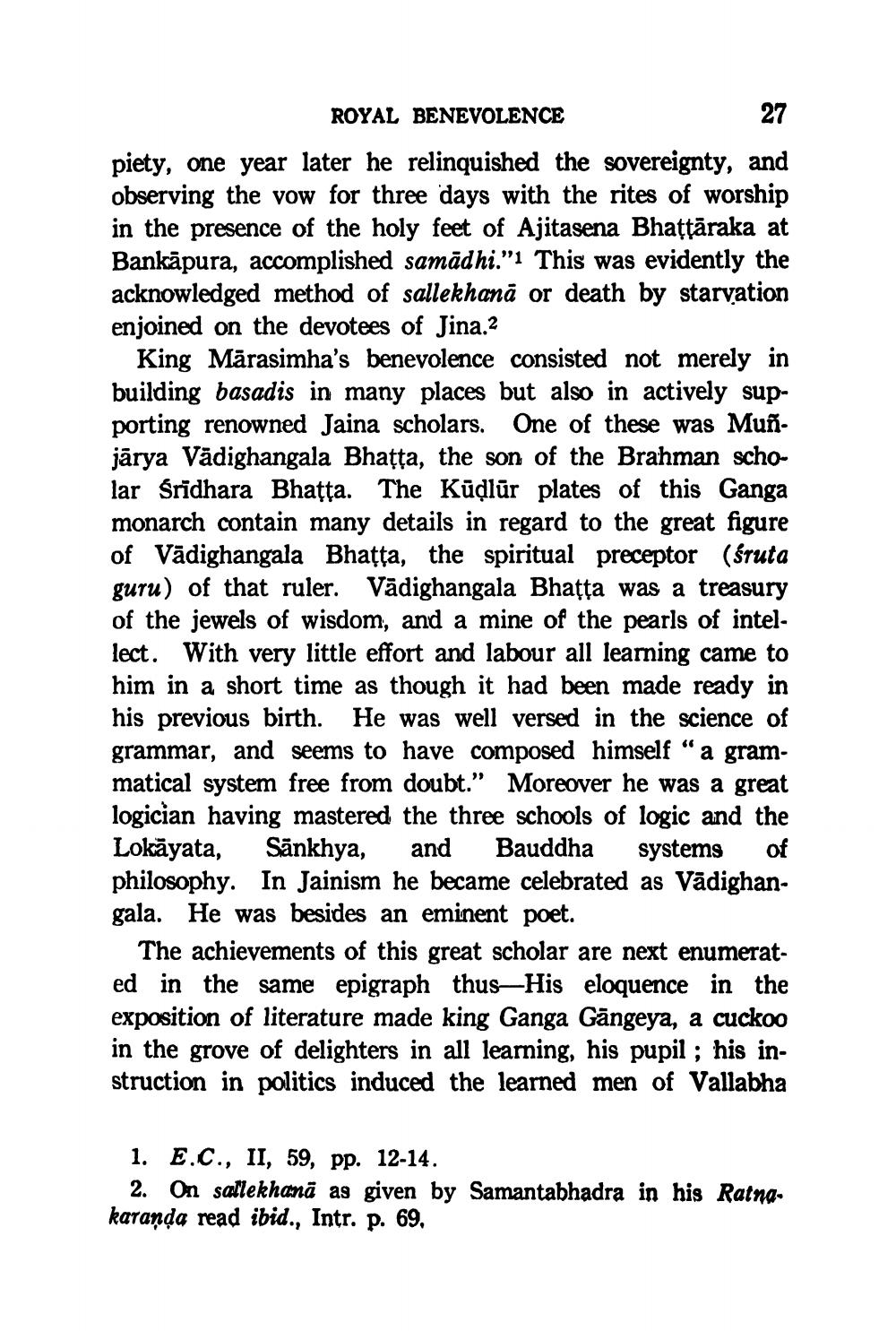________________
ROYAL BENEVOLENCE piety, one year later he relinquished the sovereignty, and observing the vow for three days with the rites of worship in the presence of the holy feet of Ajitasena Bhattāraka at Bankāpura, accomplished samādhi."1 This was evidently the acknowledged method of sallekhanā or death by starvation enjoined on the devotees of Jina.2
King Mārasimha's benevolence consisted not merely in building basadis in many places but also in actively supporting renowned Jaina scholars. One of these was Muñjārya Vădighangala Bhatta, the son of the Brahman scholar Sridhara Bhatta. The Kūdlūr plates of this Ganga monarch contain many details in regard to the great figure of Vādighangala Bhatta, the spiritual preceptor (śruta guru) of that ruler. Vädighangala Bhatta was a treasury of the jewels of wisdom, and a mine of the pearls of intellect. With very little effort and labour all learning came to him in a short time as though it had been made ready in his previous birth. He was well versed in the science of grammar, and seems to have composed himself “a grammatical system free from doubt.” Moreover he was a great logician having mastered the three schools of logic and the Lokāyata, Sãnkhya, and Bauddha systems of philosophy. In Jainism he became celebrated as Vādighangala. He was besides an eminent poet.
The achievements of this great scholar are next enumerated in the same epigraph thus-His eloquence in the exposition of literature made king Ganga Gāngeya, a cuckoo in the grove of delighters in all learning, his pupil ; his instruction in politics induced the learned men of Vallabha
1. E.C., II, 59, pp. 12-14.
2. On sallekhanā as given by Samantabhadra in his Ratna. karaņda read ibid., Intr. p. 69,




